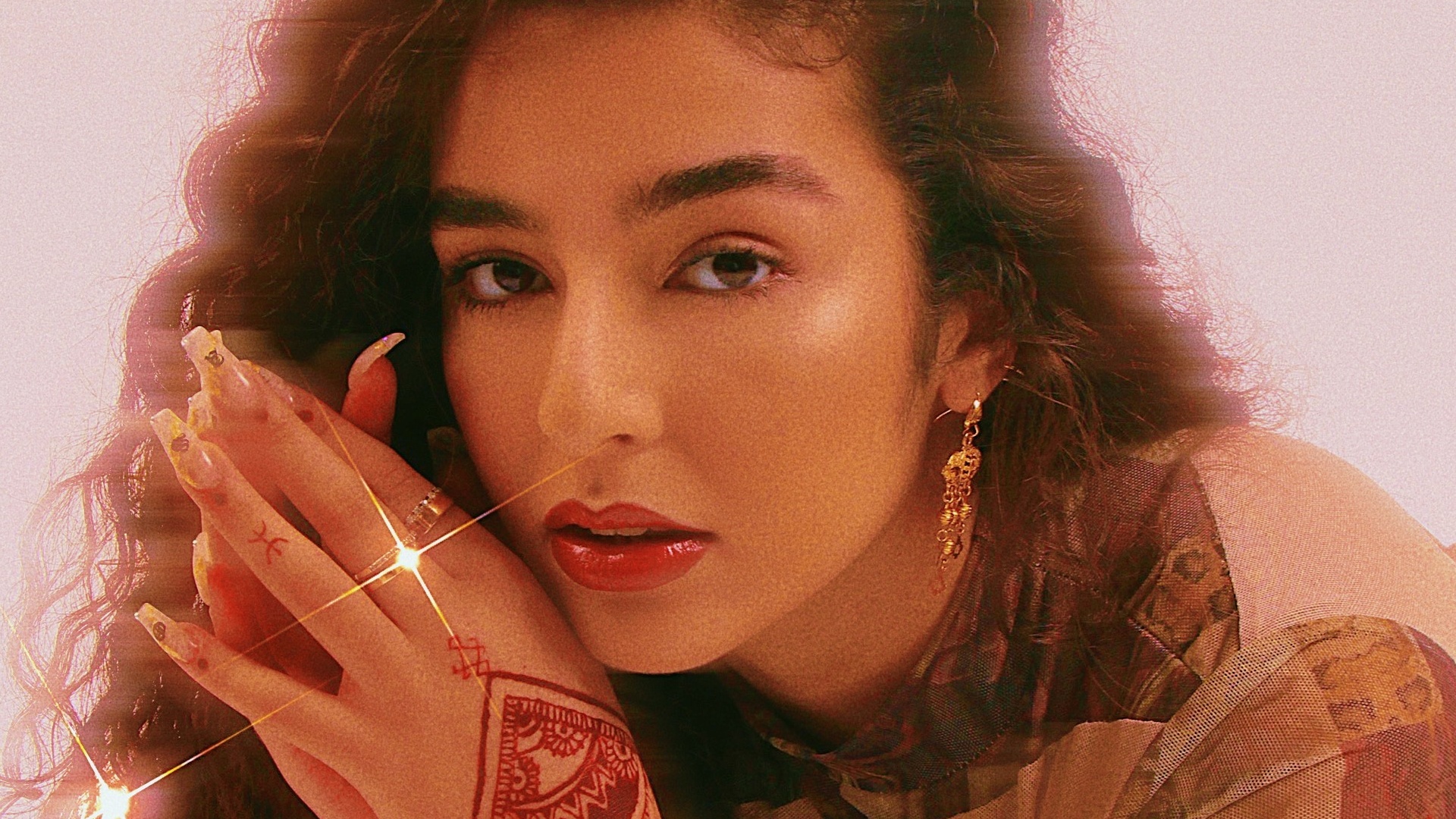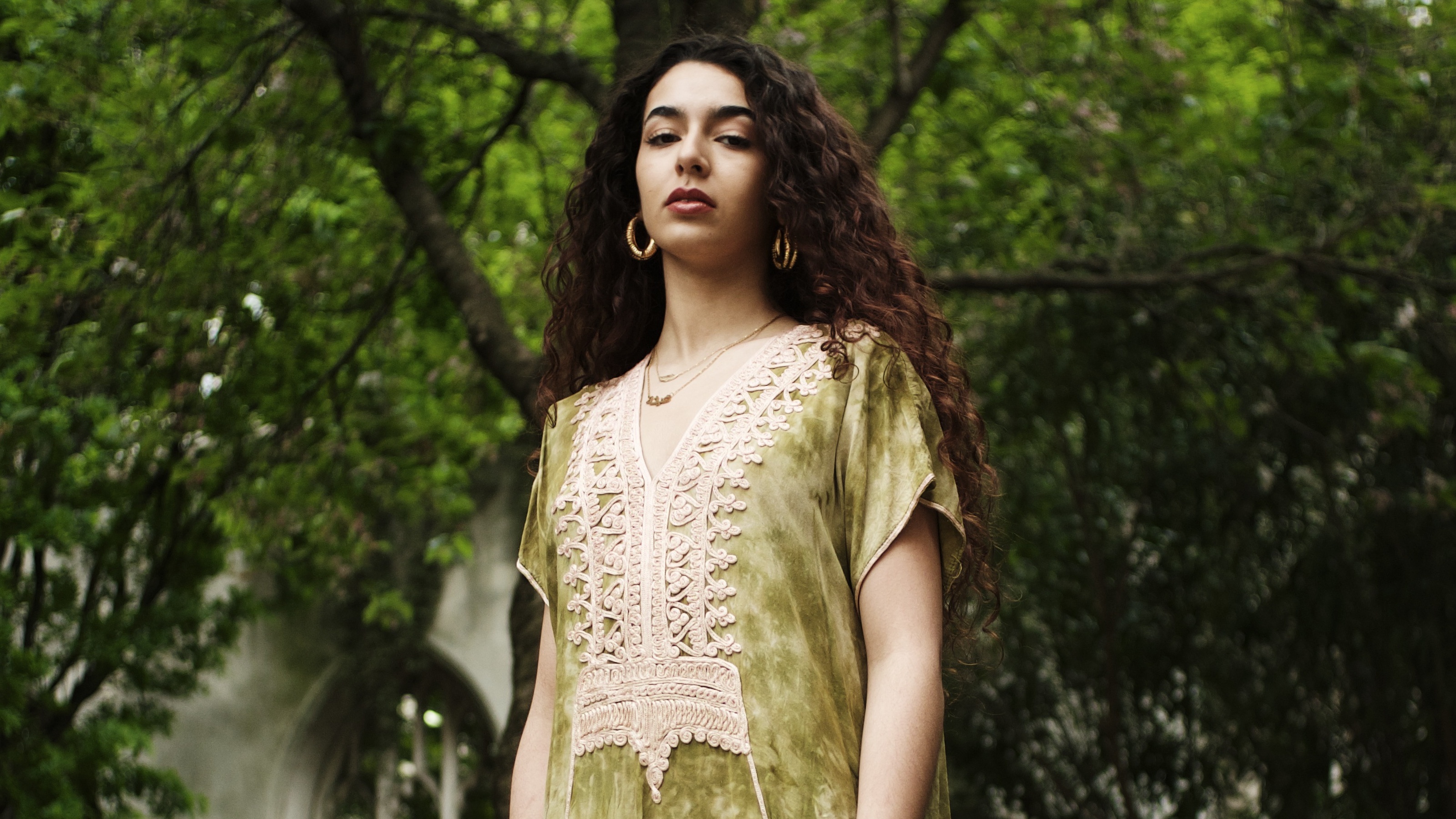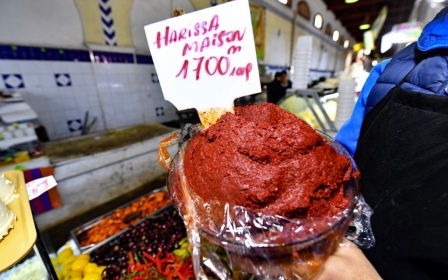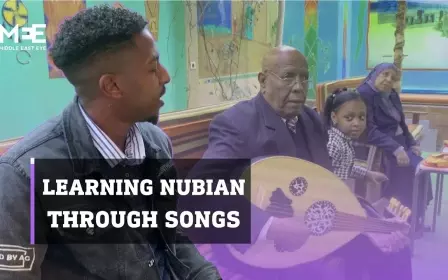Rita L’Oujdia: The artist putting Morocco on the global music map
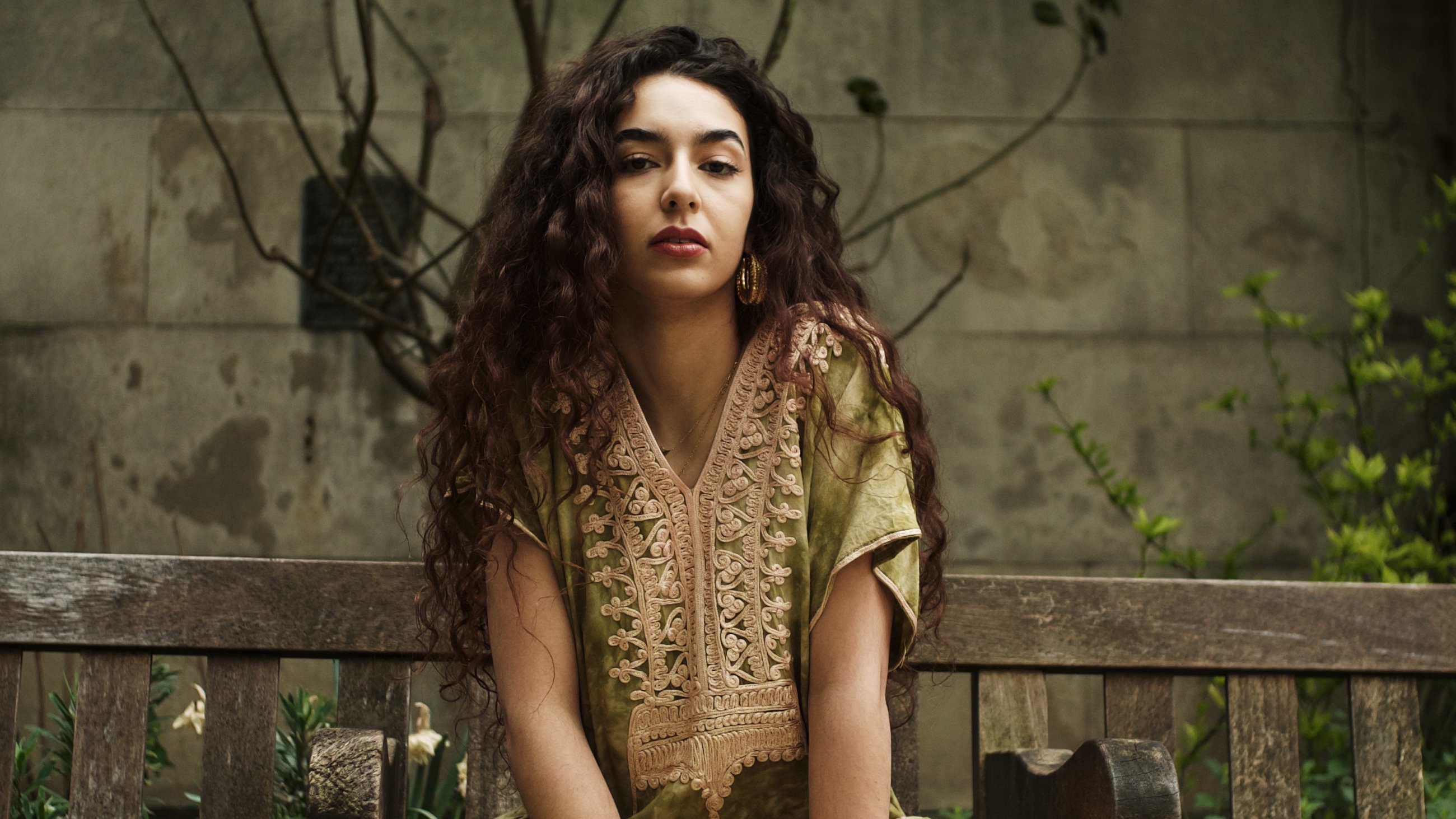
Born in Morocco and raised in France, Rita L’Oujdia excitedly rushed off-camera to grab her Moroccan national team jersey.
Speaking from her home in London, the 21-year-old singer was caught up with the Atlas Lions' dramatic World Cup , which saw the team reach the semi-finals against their old colonial power.
“I was in Morocco and I got to just dance and scream and be with the people,” L’Oujdia tells Middle East Eye. “We bonded so hard and we were so proud. I wanted France to lose so badly.”
While Egyptian rap and Lebanese indie music have garnered attention worldwide, a spotlight is now shining on a new wave of artists in Morocco.
“About goddamn time,” says L’Oujdia.
New MEE newsletter: Jerusalem Dispatch
Sign up to get the latest insights and analysis on Israel-Palestine, alongside Turkey Unpacked and other MEE newsletters
A new wave of Moroccan artists
L’Oujdia has been involved in music from a very young age, attending music school from the age of four, and has grown up admiring and drawing inspiration from up-and-coming artists in her home country.
“We’ve always had the talent in Morocco. The people that are known now, they’ve been doing that for a long time. Morocco is so diverse and culturally rich, and I find it natural that we have this new music scene that emerges,” she says.
Rita, an artist akin to the likes of Spanish star Rosalia and Argentinian artist Nathy Peluso, is herself part of this new wave of artists ready to put Morocco on the global musical map. And she’s been preparing for this moment for as long as she could remember.
As a child in Lyon, where her parents raised her and her older brother, the singer would record voice notes of her singing on her mother’s phone. She taught herself how to play the piano and the guitar through YouTube tutorials.
L’Oujdia attended music school from a young age, the first one in her family to formally go to school for an artistic endeavour.
In school, L’Oujdia willingly chose to play what many would consider a dreaded primary school instrument – the recorder.
“I love the instrument,” she shares with a smile. “The reason why I wanted to do the recorder is because my dad would do the recorder and play Arabic tunes by ear.”
Living in diaspora
L’Oujdia’s heritage informs much of her work, and is a major source of pride for her.
Her love for Morocco is apparent in her music and her daily life; the singer infuses her sounds with her own identity, pushing the boundaries of creative input.
However, she also relates to the feelings of many living in the diaspora, who can sometimes feel as though they are not “enough” of their own cultural identity.
“I did not have a lot of North African friends growing up, it was a lot of white French people,” Rita says.
“When I went back to Morocco as a kid, I was always perceived as not Moroccan enough. French people, they pick and choose. Sometimes I’m the epitome of France and sometimes I’m the most Arab woman they’ve ever met. I was always perceived differently, I did not like that.”
This feeling, in part, influenced the singer’s stage name Rita L’Oujdia. Oujda, where her family is from, is a city in northeast Morocco along the country’s border with Algeria. By choosing this name, she explicitly and deliberately reinforces her Moroccan side, disregarding any thoughts of whether or not she is “Moroccan enough” – she already is.
In many ways, this immense pride in her own culture provided a gateway to her fascination with other cultures, languages and genres.
The singer finesses her polyglot talents in her lyrics while thoughtfully blending cultural musical elements from various communities across the world.
“I’ve always wanted to learn more languages, and it’s so linked to music,” L’Oujdia says. “Music makes me learn languages for sure.”
L’Oujdia has a particular fascination with Latin and Spanish music, and would visit Oropesa Del Mar in Valencia, Spain with her family once a year for holiday.
Her latest song, Mujer Cobra, blends elements of reggaeton, flamenco, Moroccan chaabi, and raï all in one song, with L’Oujdia seamlessly singing between Spanish and Moroccan Darija.
In many of her songs, the singer performs any combination of English, Arabic, Spanish, and French together – sometimes all in one song.
This, L’Oujdia says, is when she feels most like her authentic self since she is “a mix of cultures”.
Representing Moroccan culture
Despite her talent in singing in other languages, and being able to weave through different cultures in her music, L’Oujdia has been consciously trying to focus on representing her Moroccan heritage more.
Something she has been working on, she says, is putting more Arabic lyrics in her songs.
'I want to see the day where you see someone from North Carolina singing lyrics in darija'
- Rita L'Oujdia, singer
“When I started thinking about changing my style of music and writing and putting more Moroccan, it was really to represent Moroccan culture and our language and put it out there.”
As well as her music performing well on YouTube, L’Oujdia has also managed to find success in a space largely dominated by men.
She has dreams of collaborating with Spanish-Moroccan rapper Morad and Lebanese pop icon Nancy Ajram. And to further her love of blending global styles of music, she has aspirations of combining Brazilian bossa nova with the darbuka, and reggaeton with rai.
However, her overarching goal will always be to spread Moroccan culture as far beyond its borders as possible.
“I want to see the day where you see someone from North Carolina singing lyrics in darija.”
This article is available in French on Middle East Eye French edition.
Middle East Eye delivers independent and unrivalled coverage and analysis of the Middle East, North Africa and beyond. To learn more about republishing this content and the associated fees, please fill out this form. More about MEE can be found here.


